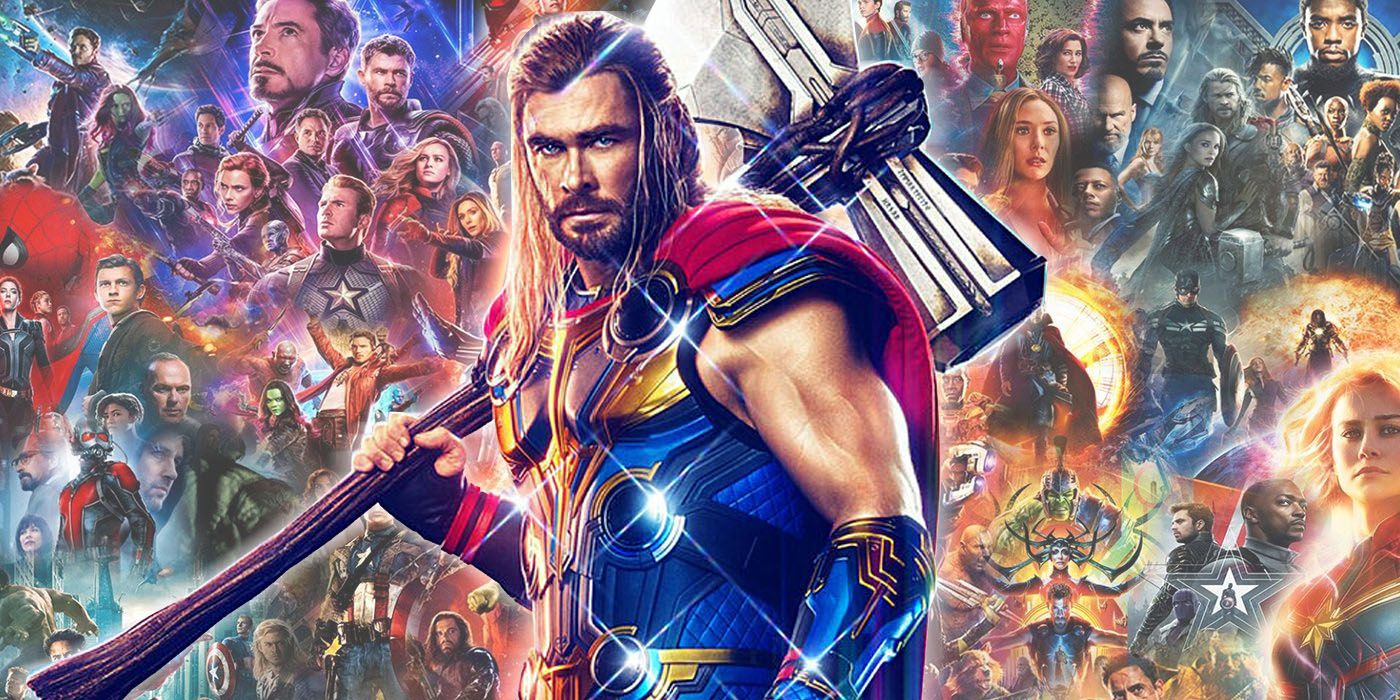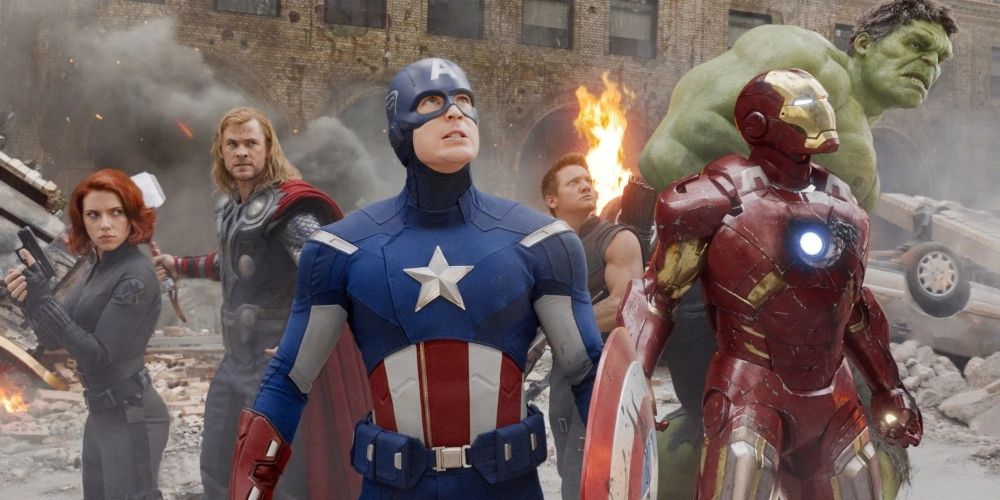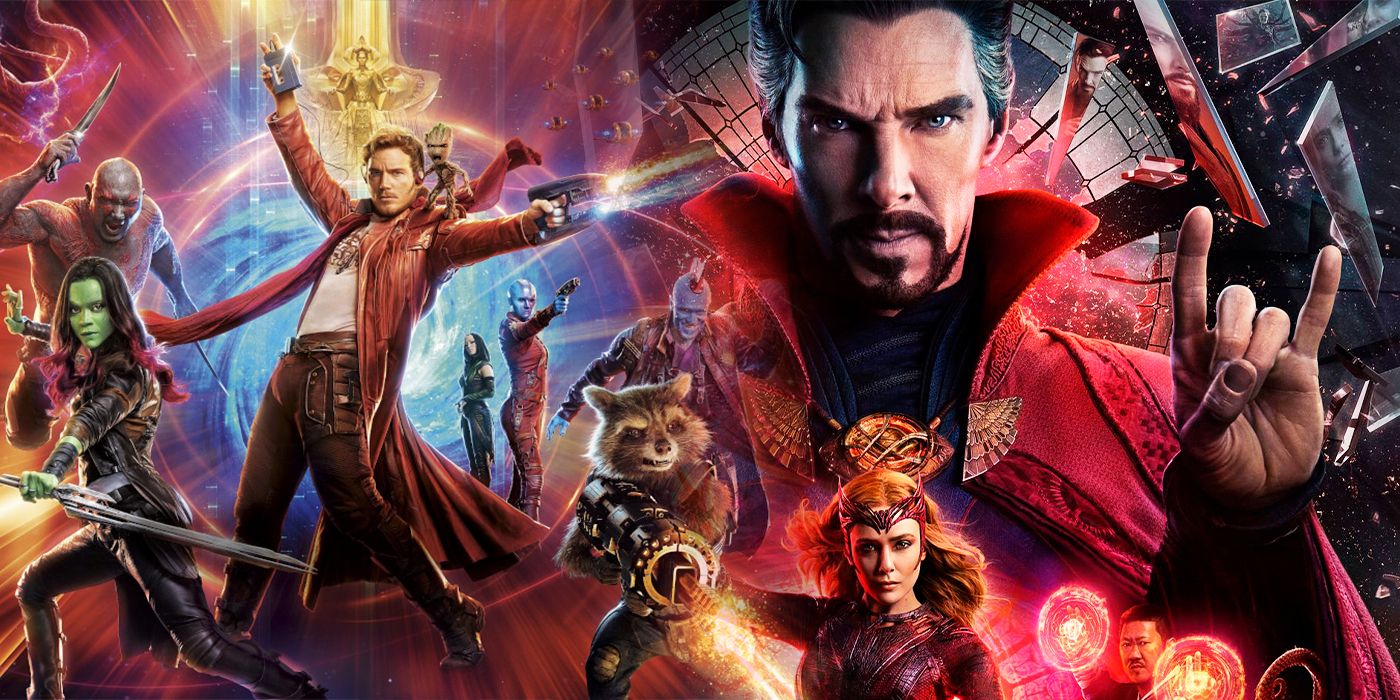Since Tony Stark declared he was Iron Man in 2008, the Marvel Cinematic Universe has grown and expanded into a machine of many moving parts -- where one franchise may lead to one event, another may be more personal and focus on a character's journey to reach their true potential. The franchise has moved at different paces for different types of fans. That said, it's raised a larger question surrounding the fanbase and the overall direction or purpose conveyed by the MCU. In recent years, it's been more evident that the bigger picture may have taken the place of more personal stories in a way that could disregard the small stories peppered within the larger narrative.
The idea that the bigger picture may be a bigger focus came when Reddit user dnkstrm presented the question of whether or not Thor: Love and Thunder would lead to a larger event or be a "filler movie." Now, the user wasn't a massive MCU fan, and the comment thread handled the question fairly and civilly. But it is an excellent question that allows readers to pause and reflect on how much the franchise has grown and changed.
In Phase One, each entry focused heavily on its individual character but eventually showed that it was leading to something bigger, The Avengers. While the heroes of Phase One uniting was always the goal, audiences got treated to heroes who had flaws and had to grow into better people. That made the epic team-up all the more exciting as fans got to see fully formed characters interact and even fight one another.
After that, another after-credits teased the coming of Thanos, but it didn't linger much on that in early Phase Two films. Instead, the franchise once again focused on introducing established heroes like the Guardians of the Galaxy (which was largely unconnected) and continuing other heroes' stories like Thor and Iron Man. But in those films, story progression was relegated to after-credits scenes. At this point, things had started to expand but were easier to maintain. However, Phase Three's titanic plans forced the story to get bigger much faster. From there, it became clear that the larger story leading to Avengers: Infinity War and Endgame was all that mattered. But this made sense because it culminated a decade of storytelling. However, fan-wise, this shifted the majority outlook on its films. Suddenly, if a movie didn't push the larger narrative, it became unnecessary.
Phase Four has continued this notion even as its grown. For example, where Loki showed the coming of Kang the Conquerer, fans have continued to expect each installment to further these plot threads, and those that don't, like Black Widow, could be considered less important or "filler." But even though these smaller films don't push the larger story, they're important pieces to a puzzle and give fans greater insight into the characters and how they'll change for future events. For example, Doctor Strange in the Multiverse of Madness was a deeply personal story about Stephen Strange and his happiness. While it didn't offer hints at the near future of the MCU, it was still crucial to his character.
In the end, films like The Avengers should definitely get treated as big event films. But the movies that continue to lead up to them aren't less important for telling a more personal narrative. The MCU may feel like a big TV show where everything is connected, and while that's true, the smaller films make bigger ones more important. In the end, focus on the bigger picture has been more evident. However, the smaller films that could be considered less vital are actually the real reason the bigger films are so good. Without additions like Captain Marvel and Ant-Man and the Wasp, the impact of these characters returning to larger films isn't nearly as grand. As a result, it's important to remember that investing in the bigger picture means nothing if the smaller pieces aren't as appreciated.



